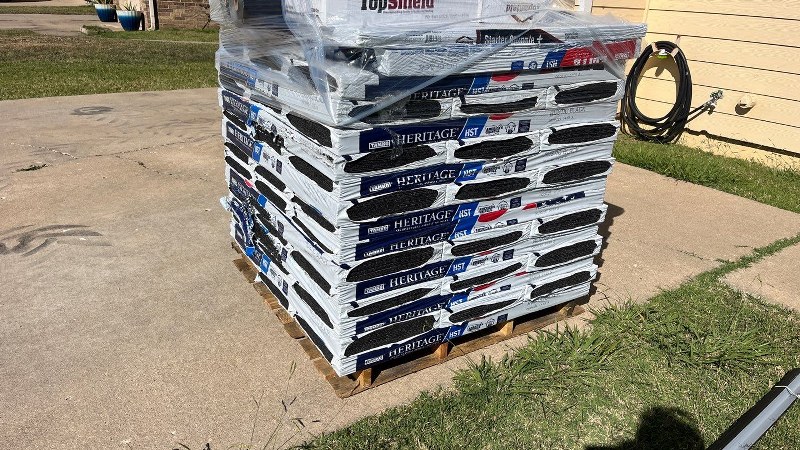Understanding the Different Types of Roofing Warranties
When investing in a new roof, it’s essential to understand the warranties that come with it. A roofing warranty offers peace of mind by providing protection against defects, workmanship errors, and other potential issues that may arise after installation. The Roofing Guys in Tulsa, OK, guide you through the basics of roofing warranties, helping you make informed decisions about your roofing investment.
Did You Know? According to the National Roofing Contractors Association (NRCA), roofing warranties typically last between 10 to 30 years, depending on the material and the manufacturer. However, understanding the terms and conditions is crucial for ensuring you receive full coverage.
Types of Roofing Warranties
- Manufacturer’s Warranty
- What It Covers: This warranty protects against defects in roofing materials. If the materials fail due to manufacturing defects, the manufacturer is responsible for replacing them.
- Duration: Manufacturer’s warranties usually range from 10 to 50 years, with some even offering lifetime coverage.
- Limitations: This warranty does not cover installation errors, so it’s essential to choose a reputable roofing contractor.
Pro Tip: Always check whether the manufacturer’s warranty is transferable to a new owner if you decide to sell your home. Transferable warranties can add value to your property.
- Workmanship Warranty
- What It Covers: Provided by the roofing contractor, this warranty covers installation-related issues such as leaks, flashing problems, or improper shingle placement. If a problem arises due to poor workmanship, the contractor is responsible for fixing it.
- Duration: Workmanship warranties typically last between 1 to 10 years, depending on the contractor.
- Limitations: This warranty doesn’t cover material defects or damage caused by weather, animals, or accidents.
For more insights on selecting a reliable contractor, check out our blog on 6 Reasons Why Roofs Fail.
- Extended Manufacturer’s Warranty
- What It Covers: Some manufacturers offer extended warranties that cover both materials and workmanship, provided the roof is installed by a certified contractor.
- Duration: Extended warranties can last 20 years or more, offering broader protection than standard warranties.
- Benefits: These warranties often include additional coverage, such as tear-off and disposal costs if the roof needs to be replaced.
Unique Fact: According to the Metal Roofing Alliance, metal roofing systems often come with warranties lasting up to 50 years or more, making them a popular choice for homeowners seeking long-term protection.
Understanding Warranty Terms and Conditions
It’s crucial to read and understand the terms and conditions of your roofing warranty to avoid unexpected expenses in the future. Here are key aspects to pay attention to:
- Exclusions: Most warranties exclude damage caused by natural disasters, improper maintenance, or alterations made after installation.
- Maintenance Requirements: Regular maintenance is often required to keep your warranty valid. Be sure to schedule routine inspections and address any issues promptly.
- Registration: Some warranties require you to register your roof with the manufacturer within a specific time frame. Failure to do so may void your coverage.
Why Choose The Roofing Guys for Warranty Protection
As an IKO and GAF Certified roofing contractor, The Roofing Guys provide high-quality installations that ensure your roof qualifies for the best manufacturer warranties available. Our expertise in roofing installation and repairs guarantees that your warranty remains valid, protecting your investment for years to come.
If you want to know more about the details and benefits of roofing warranties, click here: An Overview of GAF Roofing Warranties: Protection for Tulsa’s Weather and Insurance Needs.
FAQs
Q1: Are roofing warranties transferable to a new homeowner?
Yes, many roofing warranties are transferable, but it’s essential to check the terms and conditions. Some manufacturers require you to transfer the warranty within a specific time frame after selling your home.
Q2: What voids a roofing warranty?
Common reasons for voiding a warranty include improper installation, unauthorized repairs, lack of maintenance, or using non-approved roofing materials. Always follow the warranty guidelines to ensure continued coverage.
Q3: How do I file a warranty claim if I have a roofing issue?
If you experience a roofing problem covered by your warranty, contact your contractor or the manufacturer immediately. Provide documentation, such as photos, receipts, and maintenance records, to support your claim.
Conclusion
Understanding roofing warranties is crucial for protecting your investment and ensuring long-term peace of mind. By working with The Roofing Guys, you can feel confident knowing your roof is installed correctly and covered by comprehensive warranties. Contact us today to learn more about our roofing services and warranty options.
Contact Us
